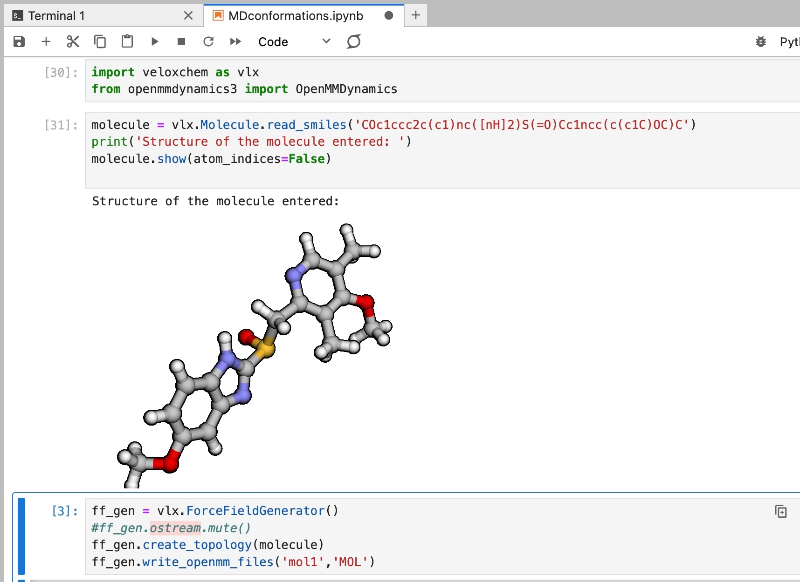The course provides basic knowledge about mathematical modeling, numerical methods and their role and function for chemistry applications, and structured programming for implementation of mathematical models. The course projects target areas closely related to chemistry.
The course contains:
- A discussion about the role of modeling in chemistry
- Design of a project in chemistry with focus on mathematical modeling
- Implementation in Python of a numerical model
- Literature study and handling of references
- Self reflection based on group dynamics and processes
- Report writing
